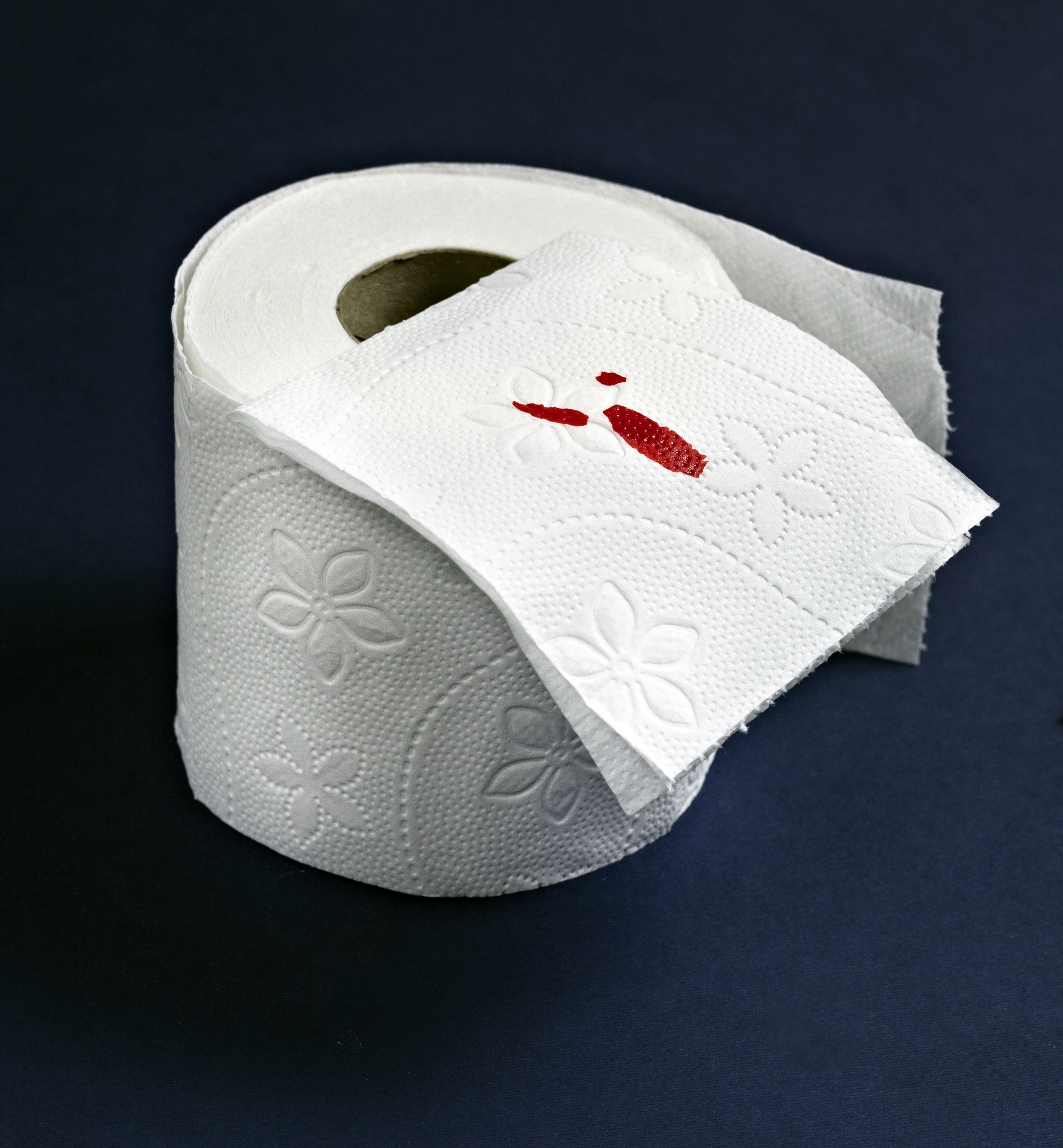
I Saw Blood In My Stool, Now What?
By Kruti Patel and Vishal Gupta, M.D.
It’s happened to most people at some point or another. You’ve just used the bathroom, and as you’re finishing, you look down and see red. That’s not a color you’re used to seeing, and now you have a hundred thoughts running through your head. What is that? Where did it come from? Is something wrong with me? You’re not alone; rectal bleeding is common in most adults.
What Is It?
Rectal bleeding or hematochezia is defined as any blood that shows up in your stool, on the toilet paper, or in the toilet bowl. Blood from rectal bleeding can vary in color – from bright red blood to dark maroon and even black.
What Does the Color of Blood Mean?
The color of blood that you see can indicate where in the gastrointestinal tract the bleeding is coming from:
Fresh, bright red blood likely indicates bleeding from your lower colon or rectum.
Dark red/maroon blood typically indicates bleeding from the small bowel or higher up in the colon.
Dark or black-colored blood often indicates bleeding from the stomach.
Why Do I Have Rectal Bleeding?
Rectal bleeding can be attributed to many things. Most commonly, rectal bleeding is caused by severe constipation, hard stools, hemorrhoids, or an anal fissure.
- Constipation occurs when bowel movements become less frequent and harder to pass. This can often lead to straining and rectal bleeding.
- Hemorrhoids are one of the most common causes of rectal bleeding. Hemorrhoids are swollen veins in the rectum and anus. These are commonly caused by pregnancy, excessive straining during bowel movements, and obesity. Hemorrhoids can also cause associated symptoms of rectal pain, itching, or discomfort.
- An anal fissure, also called an anal ulcer, is a small tear in the lining of the anus. This is typically caused by hard stools and can cause severe pain, burning, and bleeding.
- Rectal bleeding can also indicate more serious medical conditions such as anal cancer, colon cancer, colon polyps, rectal cancer, Crohn’s disease or Ulcerative colitis, ulcers, ischemic colitis, or angiodysplasia.
- Colon polyps can also cause rectal bleeding. A colon polyp is a small growth on your colon or large intestine lining and can be hyperplastic or adenomatous. These are typically found and removed during a colonoscopy procedure.
- Colon cancer occurs when tumorous growths develop in the colon or large intestine. Rectal bleeding is a common symptom of colon cancer. Colon cancer is often preventable if colon polyps are promptly identified and removed.
- Rectal cancer occurs when a tumorous growth develops in the rectum. Like colon cancer, this can also cause rectal bleeding.
- Inflammatory bowel disease is a term used for chronic inflammation of the GI tract. Inflammatory bowel disease includes Crohn’s disease and Ulcerative colitis. While Ulcerative colitis only occurs in the large intestine and rectum, Crohn’s disease can affect any part of the GI tract, from the mouth all the way to the anus. A common symptom of inflammatory bowel disease is rectal bleeding or bloody stools.
- Ischemic colitis occurs when blood flow in the large intestine is interrupted. This usually happens when blood vessels in the colon are constricted due to low pressures. Ischemic colitis often causes rectal bleeding with bright red or maroon-colored blood.

What Should I Do Now?
When experiencing rectal bleeding, it is important to inform your primary care provider and visit a gastroenterologist as soon as possible. Depending on the cause of your rectal bleeding, your gastroenterologist will recommend the best treatment for you.
What is a Gastroenterologist?
Gastroenterologists are physicians specializing in managing and treating diseases involving the gastrointestinal tract, liver, pancreas, gallbladder, and bile ducts. The GI tract is expansive and includes the esophagus, stomach, small intestine, large intestine (also known as the colon), and rectum. Gastroenterologists often perform endoscopy procedures to diagnoses and treat GI disorders. These include colonoscopy, esophagogastroduodenoscopy (EGD), endoscopic ultrasound, endoscopic mucosal resection (EMR), and flexible sigmoidoscopy procedures. Endoscopic procedures typically involve inserting a small, flexible scope with a camera on the end into the mouth or anus.
What are Treatment Options for Rectal Bleeding?
Depending on the source of your rectal bleeding, your gastroenterologist will recommend treatment. Common treatments for rectal bleeding include over-the-counter or prescription creams or stool softeners if hemorrhoids or anal fissures cause bleeding. If hemorrhoids are severe or cause a lot of pain, your gastroenterologist may recommend more invasive treatments such as hemorrhoidal ligation therapy, laser treatments, or hemorrhoidectomy. Colon, rectal, and anal cancers typically need more extensive, long-term treatments such as radiation therapy, chemotherapy, or surgery.
How Can I Prevent Rectal Bleeding?
Rectal bleeding can be prevented by regular exercise, maintaining a high fiber and fluid diet, keeping the rectal area clean, and with regular, daily bowel movements.
Contacting Us
If you are dealing with rectal bleeding, we urge you to contact the experienced, trained, and caring team of physicians at Gastroenterology of Greater Orlando. Our practice began more than 15 years ago and has emerged as one of the leading gastroenterology practices in central Florida. We perform a host of diagnostic procedures using state-of-the-art equipment in a friendly, comfortable, and inviting atmosphere where patient care is always a top priority. Contact us today at (386) 668-2221!